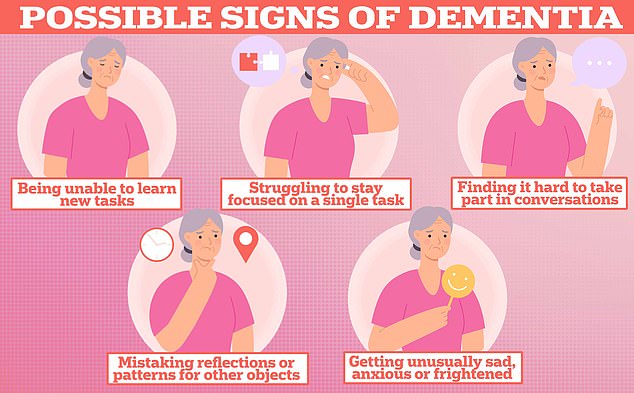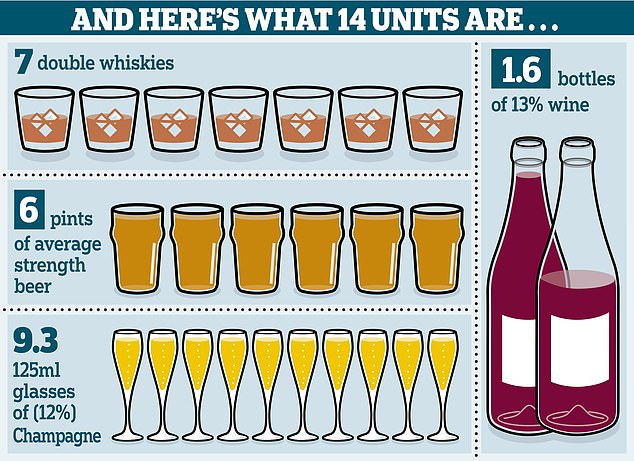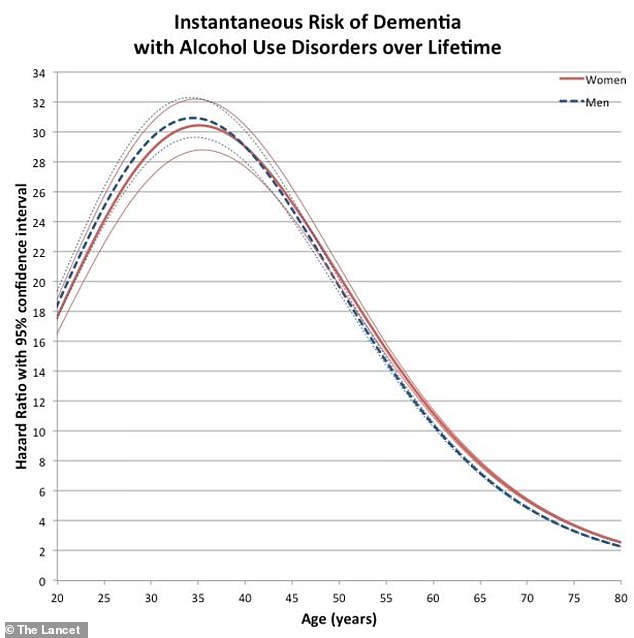A dementia expert has revealed the exact age at which you should give up beer, wine and spirits to prevent Alzheimer’s in the future.
American neurologist Dr. Richard Restak advises people to become total teetotalers from the age of 65.
Even one or two alcoholic drinks every few weeks is said to accelerate age-related damage to the nerve cells in our brain.
“Alcohol is a very, very weak neurotoxin; it is not good for nerve cells,” writes Dr. Restak in his book, The Complete Guide to Memory: The Science of Strengthening the Mind.
‘It is essential to abstain from alcohol at a stage of life in which preserving neurons is crucial.
“I strongly recommend that if you are 65 or older, you completely and permanently eliminate alcohol from your diet.”
Dr. Restak, former president of the American Neuropsychiatric Association, identified 65 because the risk of dementia increases fivefold, and continues to do so every five years.
A dementia expert has revealed the precise age at which you should give up beer, wine and spirits in order to prevent the memory-robbing disorder.

Being unable to learn new tasks and having difficulty concentrating on a single task can be a sign of dementia, the memory-robbing disease that affects almost 1 million Britons and seven million Americans.
Dementia is a continuous decline in brain function that deprives sufferers of their memories, abilities and independence.
Almost a million Britons are thought to be living with dementia, around one in 14 people aged over 65.
However, the number is expected to rise to almost 1.5 million in the coming decades as the population continues to age.
Multiple studies have linked heavy alcohol consumption to an increased risk of the disease because prolonged excessive consumption is known to shrink parts of the brain.
This reduction can exacerbate the progression of dementia and sometimes even trigger the condition.
A lifetime of heavy drinking is listed as one of 14 lifestyle factors that could increase someone’s risk of developing dementia over their lifetime.
In addition to the more common forms of the disease, excessive alcohol consumption can also cause a type of dementia called Wernicke-Korsakoff syndrome.
This occurs when alcohol impairs the body’s ability to absorb a nutrient called vitamin B1, also known as thiamine, which is vital for keeping brain cells healthy.
Charities, such as Alzheimer’s Research UK, estimate that half of dementia cases worldwide could be prevented or significantly delayed if people reduced their alcohol consumption.

The NHS recommends that adults drink no more than 14 units per week – that’s 14 single drinks of spirit or six pints of beer or one and a half bottles of wine.

Research published in The Lancet found that 50 percent of French adults with early-onset dementia also had a history of alcohol use disorder.
Research has also suggested that the dangers alcohol poses to dementia risk may be present well before age 65.
A major study of French people diagnosed with early-onset dementia, medically defined as before age 65, found that half had an alcohol use disorder in their medical records.
Britons are advised to avoid drinking more than 14 units of alcohol per week, the equivalent of around six pints of medium-strength beer or one and a half bottles of wine.
Some small studies suggest that drinking in moderation may help prevent dementia; However, experts and charities insist that this link has not been substantially proven.
Dementia, of which Alzheimer’s is one type, is estimated to cost the country £43 billion a year, a bill that is expected to double by 2040.


